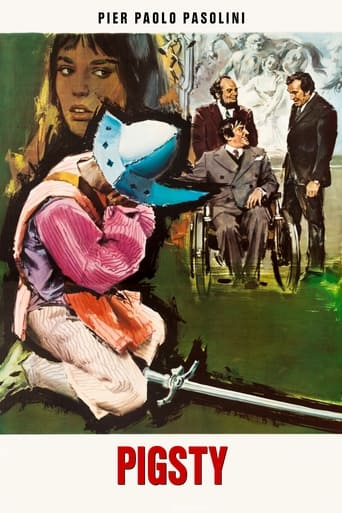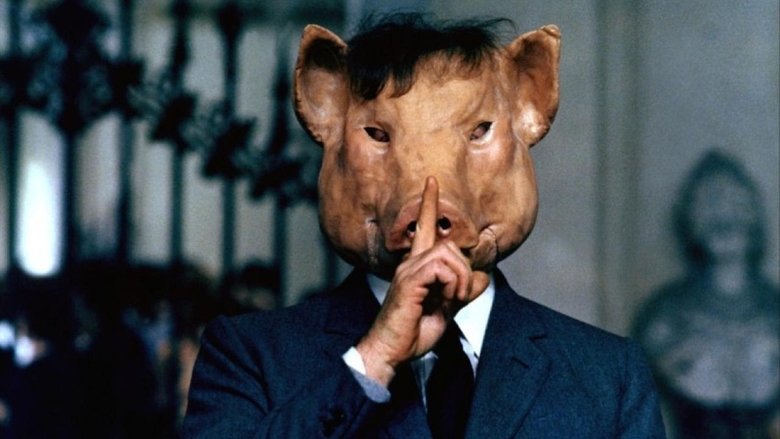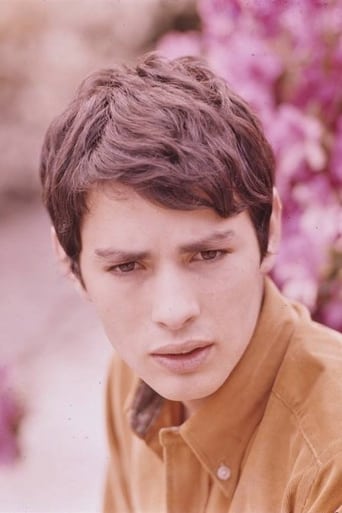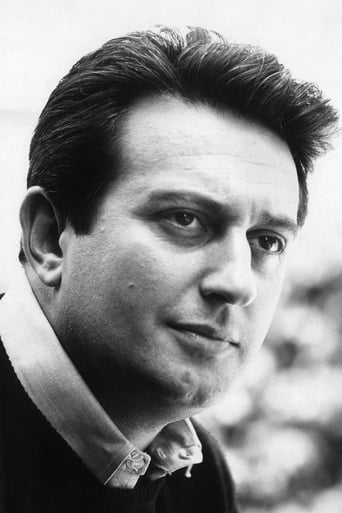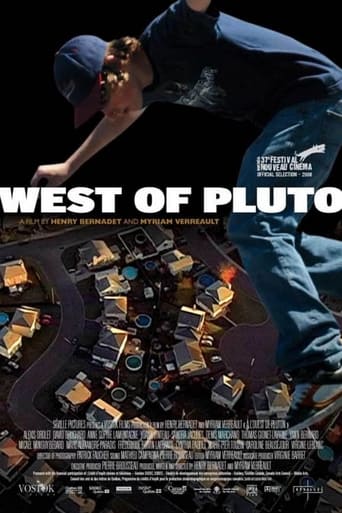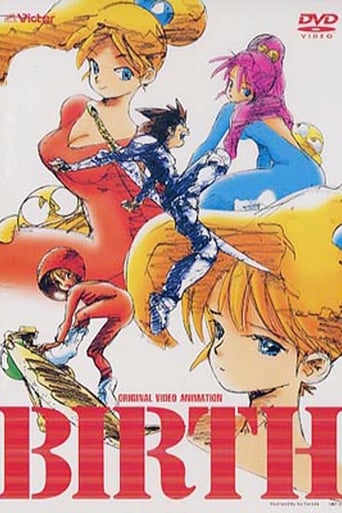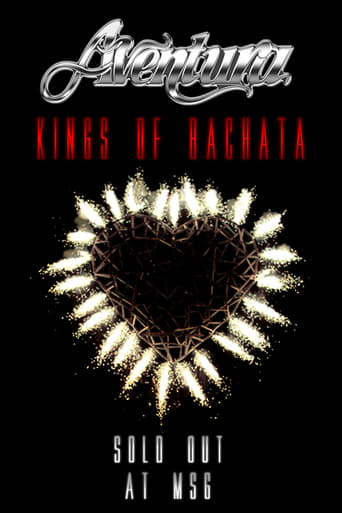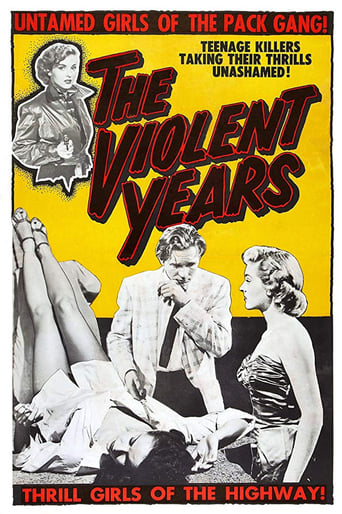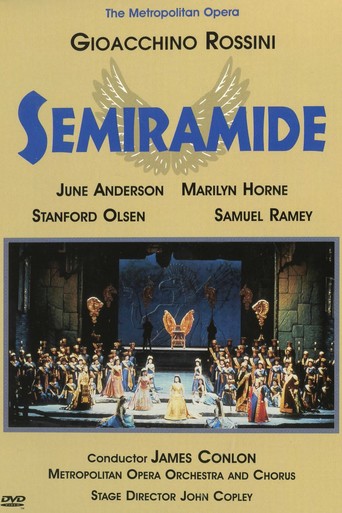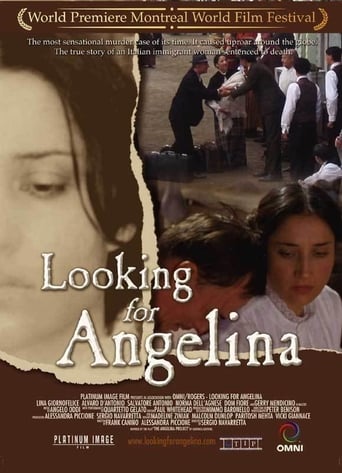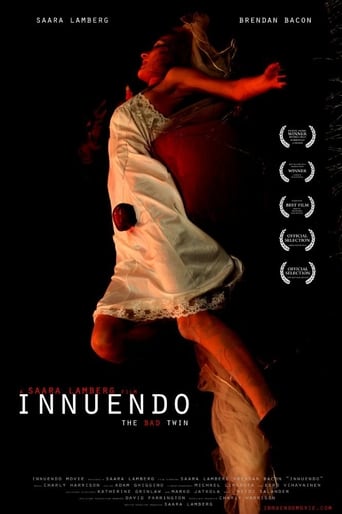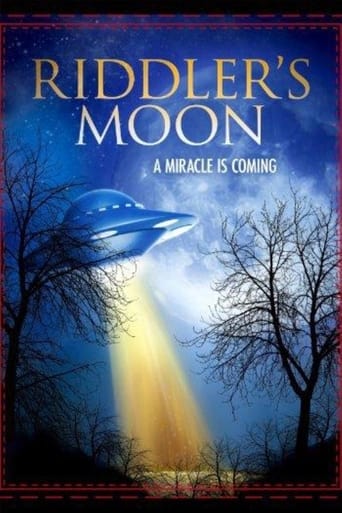Pigsty (1969)
Two dramatic stories. In an undetermined past, a young cannibal (who killed his own father) is condemned to be torn to pieces by some wild beasts. In the second story, Julian, the young son of a post-war German industrialist, is on the way to lie down with his farm's pigs, because he doesn't like human relationships.
Watch Trailer
Cast
Similar titles
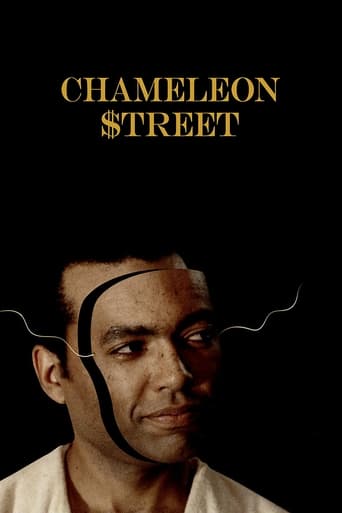
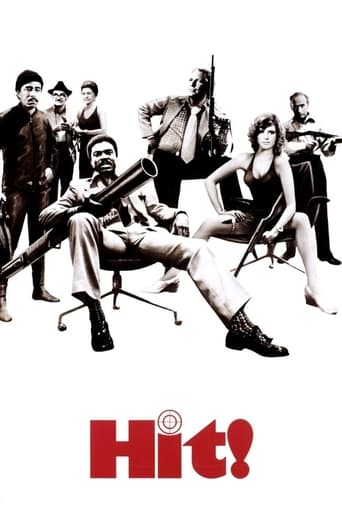
Reviews
Very very predictable, including the post credit scene !!!
If you don't like this, we can't be friends.
I don't have all the words right now but this film is a work of art.
It’s fine. It's literally the definition of a fine movie. You’ve seen it before, you know every beat and outcome before the characters even do. Only question is how much escapism you’re looking for.
This is one of the strangest works of Italian writer-director Pier Paolo Pasolini. It interweaves two story lines: The first, almost dialogue- free, tale takes place in an unknown volcanic landscape at an unspecified historical period and involves a young cannibal who leads a band that rapes and murders the local populace. The second tale is set in 1967 Germany and involves the son of a wealthy industrialist who is used as a pawn in a power game between his father and a business rival.It's well-made with several striking images, but it is very slow, very obscure and challenging. It is a bleakly savage satire on human nature, which will certainly not appeal to everyone. In fact it's a film that is easy to admire, but hard to like.It is certainly a powerful work of art, but certainly don't expect to enjoy it.
This movie is a testament to the power of poetry and its capacity to dwarf the medium of cinema. Pasolini merges the rites of passage towards 'bildung', {German concept for the development of civilizing Culture}, using five separate themes; - the immature rapport between a wealthy, young bourgeois couple, {named Julian and Ida}, the dilemma of Julian's parents, who desire the union, {it would be materially beneficial}, and the contrasting styles of two German plutocrats, - all this Pasolini combines and contrasts with the historical Italian vagabond life of a countryside bandit , circa the early 1500's, armed with a musket, roving the barren hilly escarpment in the Pompeian district and preying on unarmed, vulnerable Christian pilgrims on their way to Rome.Julian and Ida play at being in love - but their inexperience leads them to compromise reality with their love of words. Julian is a spoilt young man who has been infantilized by his doting mother, who in her ensuing dialogue with Ida reveals herself to be totally blind to her son's character, believing instead that Julian has all the laudable attributes of a good German. The narrative flow concerning this German family, shot as an interior with much opulence, antique furniture and Renaissance paintings, in enormous palatial rooms, which as the story moves forward, is intercut with desolate scenic waste as the vagabond displays primitive savagery, in killing, dismembering and cannibalizing his victims. These scenes are in a landscape that is evocatively lyrical and empty of civilization {that is apart from the hymns which are beautifully chanted by the pilgrims on their way to destruction}.In a parody of Godard and Truffaut, it soon becomes obvious that the love of the two 'pretty young things' is doomed to fail {as the barrier that they set up between each other with meaningless words becomes insurmountable}. The movie now shifts into its essential focus. The two plutocrats, the one, being Julian's father Herr Klotz, a German word for 'idiot' or blockhead, and the other, Herr Herdhitze, meaning 'hot fire' {possibly a reference to the exterminating ovens}, square up as two contrasting sides of the German psyche. Klotz, a humanist, is a cultivated man with a sense of cynicism and an appreciation of the accurate satirical art works of George Grosz - he sees himself depicted by Grosz sitting in a café with a sexy young secretary on his lap, cigar in his mouth and a piggish face - he also refers to Brecht's championship of the workers. Herdhitze, a technocrat, on the other hand, refers to himself as a man of science, who despises individuality, and wants to convert all the impoverished farmers to technicians - he has no soul at all.The two men face off with the core of the German problem - their love of the meat of the pig. Their dialogue .... Klotz - 'the Germans love their sausage' to which Herdhitze replies 'shit' Klotz 'but they do defecate a lot'. The ironic impasse between the two Nazis is whether Jews are pigs or not - with the added Surreal contradiction of, if the Jews are pigs why do the Germans love their pork. and why do they grunt like pigs?The year is 1959, in the German quest for an economic miracle, questions of Jews and culture are easily overcome, and the two plutocrats combine forces, in the pursuit of their worship of material wealth. Meanwhile Julian has resolved his confusion, and sacrifices himself to the totem of the pig, by going to the German Temple - the Pigsty - and there offers himself as an anointed meal to the pigsPasolini has wrought a great work of Art that might have been an Epic Poem or a great novel or a great Painting like Picasso's 'Guernica' or Goya's 'Atrocities of War'. He certainly has no sympathy whatsoever for the Nazi German and his god 'The Pig'. This is a difficult movie to digest, but it's rationale is crystal clear. If you are interested in the History of the Intellect, then this movie is unmissable.
Bsesides his final work "Salo", the "Porcile" is Pier Paolo Pasolini's most abstract, most hermetic and thus most and also most controversially discussed film. In a famous German reference work of film, this movie is interpreted in the following way: both cannibalism and sodomy be "symbols" of Pasolini's homosexuality. I have seldom read something more stupid and primitive. Moreover, in all reference commentaries that I have seen so far, the interpreters seem to be sure that "Pigsty" consists of two independent parts.In one of the two parallel told stories, a cannibal who seems to live in a paleolithic world, is condemned to be mangled by dogs. In the other parallel told story which plays in a German (?) castle, some negotiations of leading fascists are told. Here we see the ultimate predecessor motives of Salo. There is also a son, Julian, bourgeois like his father, who meets Ida, a liberal girl, and it seems that they cannot come together. The water that separates them looks like the border between the Here and the Beyond and not like a swimming pool embedded in a piece of park. Even when they try to walk towards one another, the never succeed in reaching a meeting point on one of the borders. Julian, however, prefers to enjoy his sexual contacts in the pigsty that belongs to the park of the castle, with the pigs that finally eat him up. The two parallel told stories have in common, as Pasolini himself said, that "bourgeoisy eats up his children". This may be true - since the time of evolution between the paleolithic and post-war fascistoid Italy just made the short step from cannibalism to sodomy.
I haven't seen too many Pasolini films. Hardly is there any humour thrown in this one. Unlike, say, Decameron which I really loved, which featured comical shorts, this one, is obscure and hard to explain. I feel no need for explaining any metaphors, or finding 'what the poet wanna say', the two parallel stories have nothing obvious in common, and while one of them has no dialogues at all (visually impressive, though) the other one is full of it. Interesting dialogues, for love, lust, passion, politics.For desert there are (for once more) two or three bits of Pasolini's denial of God. I can't help but like such statements! Recommended only to Pasolini fans and fans of old, 'arty' euro-films...
